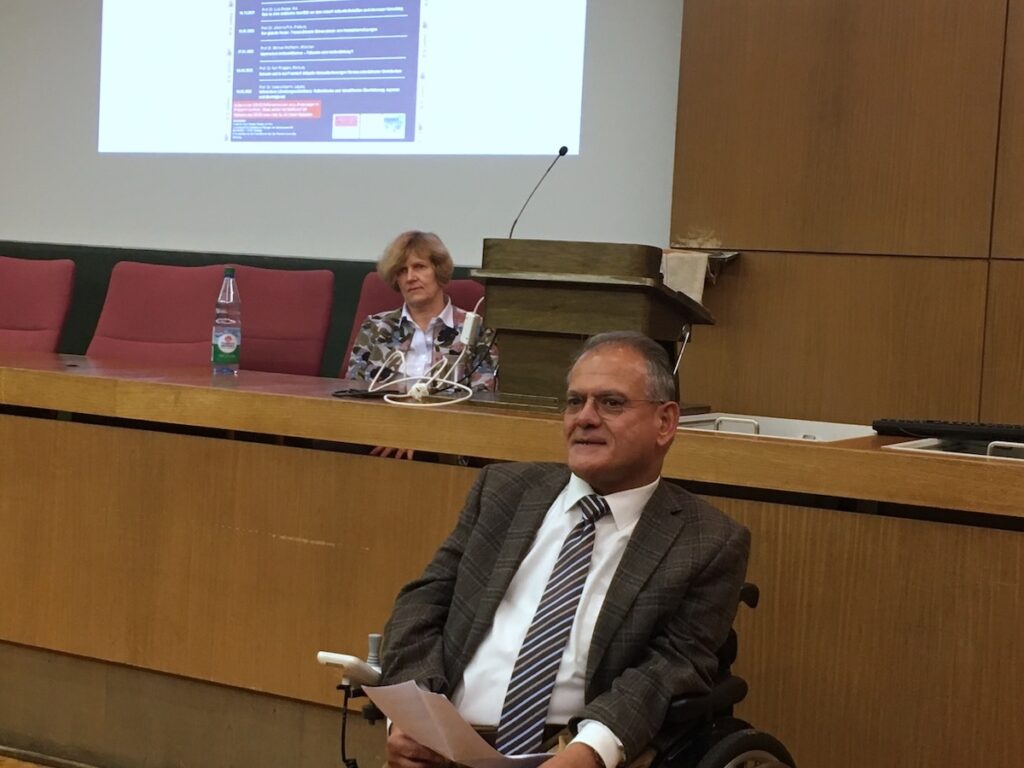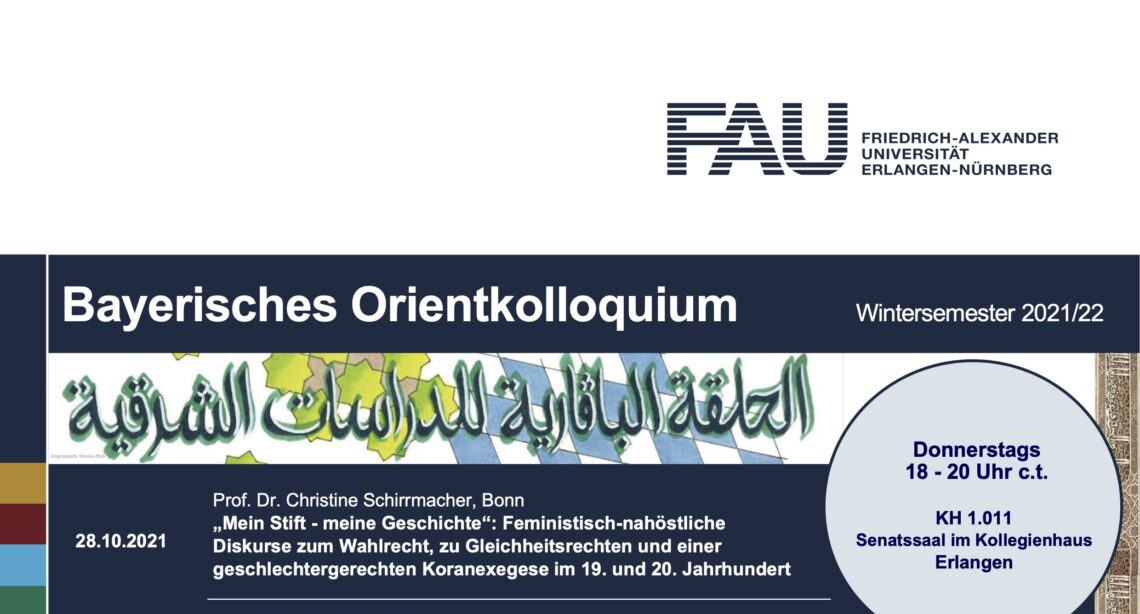Christine Schirrmacher presents a summary of her presentation at the Bavarian Orient Colloquium
(Bonn, 13.01.2025) “My Pen – My History: Feminist Middle Eastern Discourses on the Right to Vote, on Equality Rights and on a Gender-Equitable Exegesis of the Quran in the 19th and 20th Centuries” was the topic of the presentation by Bonn Professor of Islamic Studies Christine Schirrmacher at the Bavarian Oriental Colloquium. The Bavarian Oriental Colloquium is a joint initiative of institutes at the universities of Erlangen-Nuremberg and Bamberg, as well as the Centre for Euro-Oriental Studies (Bamberg), the Chair of Oriental Philology and Islamic Studies, the Friedrich-Alexander-University Erlangen-Nuremberg and all Oriental faculties at the Otto-Friedrich-University, Bamberg. The topic was developed by the inviting professor, Prof. Dr. Georges Tamer, Professor of Oriental Philology and Islamic Studies and Director of the Bavarian Research Center for Interreligious Discourses (BaFID) at the University of Erlangen-Nuremberg.

The speaker, Prof. Dr. Christine Schirrmacher, is now providing the following summary of her presentation:
A first wave of feminism in the Middle East developed in the wake of the emergence of so-called reformist Islam at the end of the 19th century as a reaction to European colonization and the advance of Western culture in the MENA region. Along with this, the increase in educational opportunities for women, the flourishing of film, literature and art, and the emergence of new movements and parties led to a changed awareness of women’s rights. Hand in hand with this, an upper-class women’s movement developed (partly with the participation of European women), which actively opposed European colonial rule and campaigned for the national independence of their home countries. This first wave of feminism from the end of the 19th and early 20th century was mainly secular and advocated in particular for women’s suffrage, the right to pursue a profession, expanded educational opportunities, a ban on polygamy and improved divorce laws for women.
The second wave of feminist movements in the MENA region from the 1970s onwards was primarily a counter-movement to the rise of Islamism, whose opinion leaders propagated significant restrictions on women’s rights with an extremely traditionalist understanding of women’s roles in society. Feminists now mainly refer to religious texts to justify women’s equality. A male-dominated, traditional Quran hermeneutics is rejected, but the verbal inspiration of the Quran is upheld. Accordingly, feminist Quran exegesis of the 20th and 21st centuries must be described as progressive, but by no means as liberal.
Downloads and Links
- Photo: Prof. Dr. Georges Tamer, University of Erlangen-Nuremberg, moderator of the Bavarian Orient Colloquium, introduces Prof. Dr. Christine Schirrmacher © Andreas Knöll
- The invitation to the event: https://bonner-querschnitte.de/wp-content/uploads/2025/01/2021_2022_Orientkolloquium.pdf


